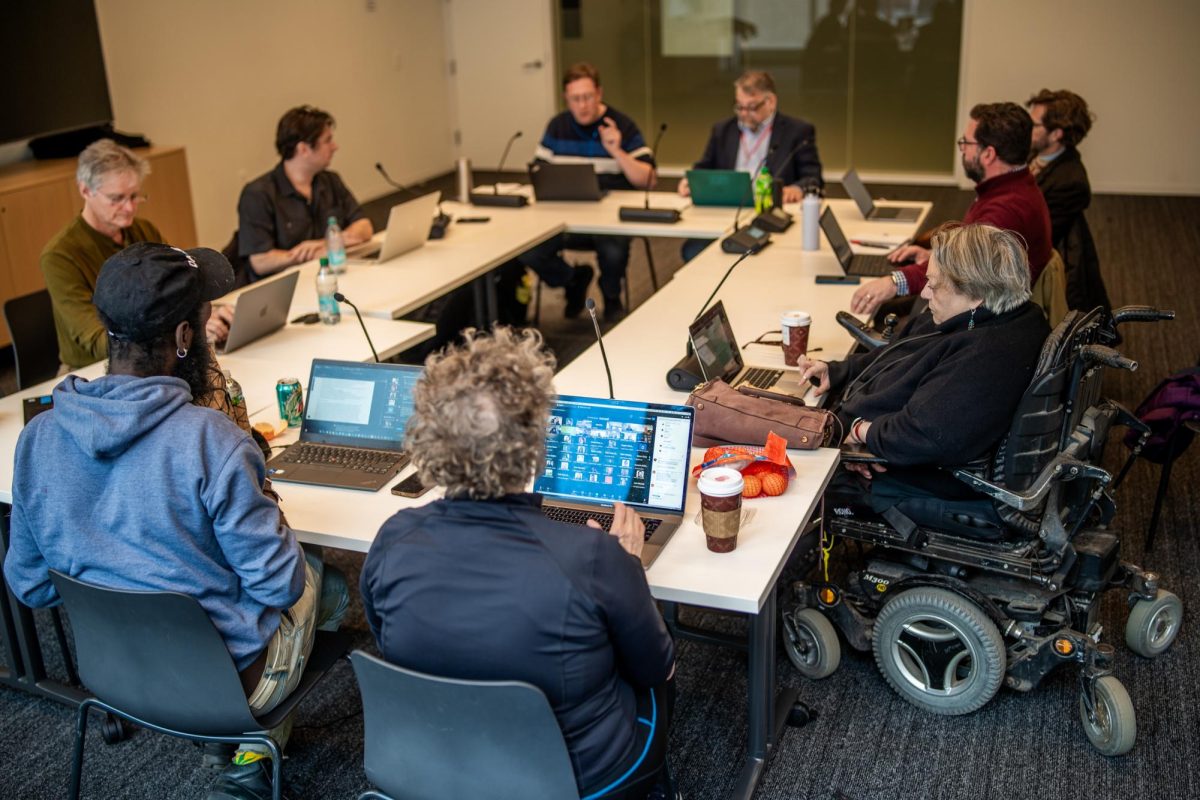The college leadership will present the overhaul of Columbia’s programs to the Board of Trustees on Dec. 16 instead of early next year, moving up the timeline for when the board will consider the financial implications of merging and eliminating majors.
The board had been set to consider the program changes in February 2025 after the spring semester started.
But Senior Vice President and Provost Marcella David told the Faculty Senate at its final meeting on Friday, Dec. 6 that she would have her review completed by next week and be ready to present her recommendations to the board just after the fall semester ends.
The purpose is not for the board to approve the curriculum but “for us to be able to explain to the board how the program array is going to have an impact on our positive impact on our financial situation,” she said.
The Faculty Senate conducted in its review of the program arrays for seven of the eight schools that had submitted major restructuring of their majors. That process was led by the senate’s Academic Affairs Committee.
The College-Wide Curriculum Committee also has completed its review of faculty recommendations for the college’s 58 majors.
“Having the program array finalized in December will also enable us to have our admissions folks reach out to students who have already applied and been admitted to Columbia College and be able to say, you know this is what the programs are, and recruit them to programs that might have a different name, but still have a similar impact to what they were hoping for when they were applied to us,” David said at the senate meeting.
By the end of January, the schools must finalize the changes to their programs, including any new course offerings, and have them put in Curriculog, the college’s curriculum management system.
Michael Caplan, president of the college’s AAUP advocacy chapter, said the timeline is rushed and “bypasses many of the best practices in curriculum development in academia.”
“It increases the workload on faculty and staff to a significant degree, without additional compensation; it substantially increases the potential for less than ideal curriculum formation; it creates the potential for confusion for both incoming and continuing students,” Caplan said in an email to the Chronicle. “It does not allow for faculty to use the J-term to focus on their creative and scholarly work, which is an essential part of keeping faculty current and connected to their field of expertise.”
The changes being considered right now would go into effect in Fall 2025 for new students, who also would see a 10% tuition increase, as the Chronicle previously reported.
Faculty worked for much of the fall semester on changes to the school’s programs at the direction of David, who proposed eliminating up to 18 majors at the college and merging other programs. None of these changes impacts current students who will graduate with the degrees they came to Columbia to earn.
In November, the Chronicle reviewed drafts of some of the changes that faculty in the eight schools had proposed, including keeping the creative writing major even though David had recommended that it be eliminated.
Faculty agreed with David and proposed eliminating the art history, environmental studies and ASL-English Interpretation and radio majors.
Steven Corey, dean of academic operations and programming, attended the senate meeting as a guest speaker to discuss the changes being made to reduce the core requirements from 45 to 30 credits.
The new core would consist of six categories with different credits required for each one:
- Aesthetics and creative expression would have three credits,
- quantitative reasoning would have three credits,
- communication would have six credits
- historical and cultural understanding would have six credits
- scientific discovery would have three.
Students also would be able to select an additional nine credits in the core to meet the requirements. The exact classes are still being determined.
Copy edited by Manuel Nocera
Resumen en Español:
Columbia ha acelerado sus planes de reestructuración de programas, con la presentación de recomendaciones al consejo directivo programada para el 16 de diciembre de 2024, en lugar de febrero de 2025. Los cambios, que serán efectivos en el otoño de 2025, incluyen la eliminación o fusión de varias carreras y la reducción de los requisitos del plan de estudios básico de 45 a 30 créditos. Los estudiantes actuales no se verán afectados, mientras que los nuevos serán informados sobre las ofertas revisadas.
La facultad ha expresado preocupaciones sobre el calendario acelerado, citando una mayor carga de trabajo, posibles confusiones para los estudiantes y tiempo limitado para el trabajo académico. A pesar de las propuestas iniciales, la carrera de escritura creativa se mantendrá, aunque programas como historia del arte y radio están programados para ser eliminados. Los planes finales deben completarse en enero de 2025.
Resumen por Manuel Nocera











